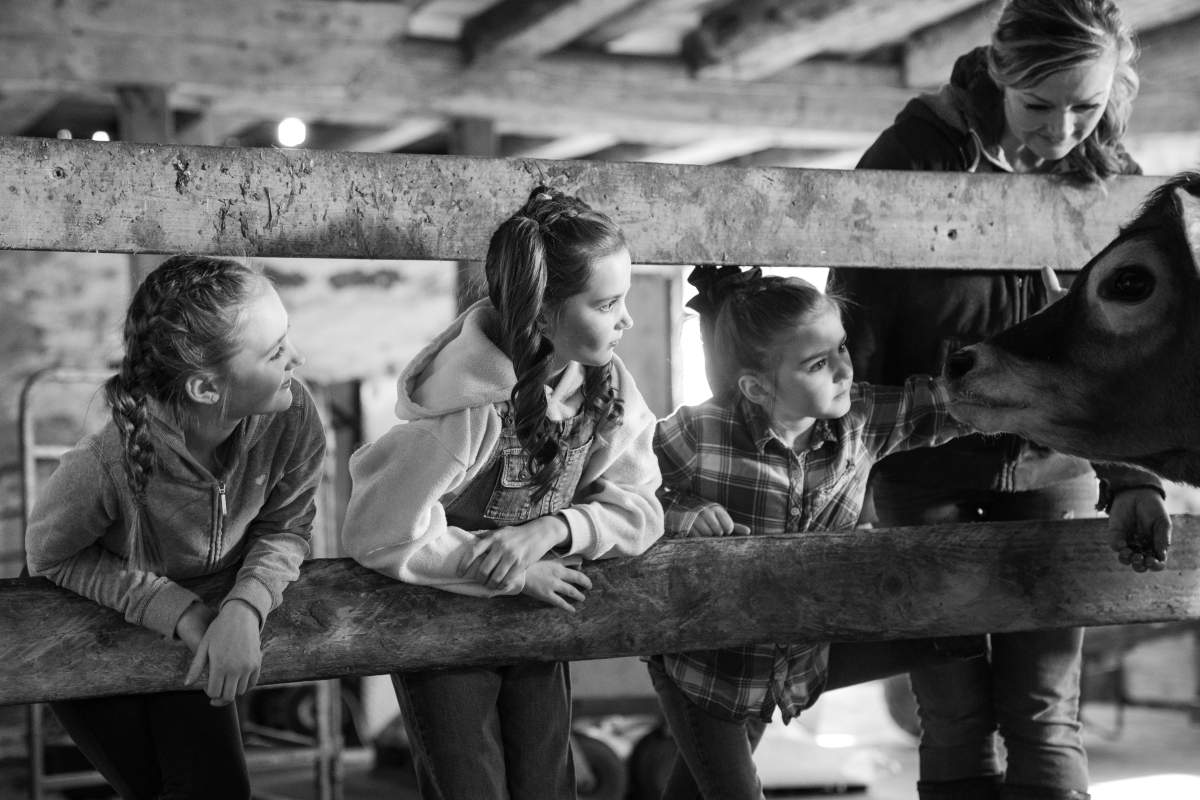The word “farmer” likely conjures an image of a man in his fifties wearing denim overalls driving a tractor. This is a stereotype –the reality is that female farmers are on the rise in Canada.

According to Stats Canada, the percentage of farm operators who are female hit 28.7 per cent (77,830 women) in 2016 (versus 25.3 per cent in 2012).
The reasons behind this increase in female farming is multifaceted. For one, the percentage of women who’ve entered the farming industry in the last five years is more than double the national number. Some reports suggest that more young women are willing to take the risk of taking over family farms (the number of farms run solely by women under 35 rose 113 per cent in 2016).
Second, more women are beginning to identify themselves as farmers where at one point they would be considered “just the wife,” an article in The Western Producer notes. It can be argued that “females have been farming partners for as long as farming existed – they just are rarely identified that way,” Nikki Wiart writes.
“My great grandmother kept their mixed farm afloat by selling eggs and butter, all while caring for seven kids. She wasn’t considered to be a farmer.” That perception is changing, Wiart suggests.
Lastly, there’s more incentive for women to join the agricultural work force. Some grassroots networks offer grants for women thinking of entering the field. Similar programs exists through Agriculture and Agri-Food Canada. The AgriDiversity Program, for example, helps under-represented groups in agriculture take on leadership roles by providing training to selected individuals.
“As farms are passed down to the next generation of dairy farmers, we have seen more and more daughters, sisters, granddaughters taking on their family business and continuing the family legacy of dairy farming,” Murray Sherk, a board member at Dairy Farmers of Ontario, says.

Get daily National news
Julie Eby, an Ayr, Ont. farmer and mother of three is just one example of these women.
The fifth-generation Jersey cow breeder was born and raised on a farm in Fisherville, Ont. where she worked alongside her parents. She spent her teenage years competing in high-calibre shows with the family’s Jerseys, but never actually thought she would become a dairy farmer herself.
She set off for an office job in her twenties, but it wasn’t long before she returned home, recognizing how much she missed the farm.
In 2009, she took over the family business and turned it into the success that it is today.
“I always thought as a woman, you were always the farmer’s wife, not the actual farmer. But that role didn’t sit well with me,” the 41-year-old says, noting that because she had to run the household and the farm, she had to work even harder than her traditional male counterparts who wouldn’t typically take on household tasks.
Eby has 150 Jerseys housed across various locations – 40 of which she milks on her four-acre property. She estimates those cows produce about 2,000 litres of milk every two days.
Her cows still come to her so that she can manually take them on and off milking machines, she cleans each one by hand and she can trace each cow’s lineage.
That special care has helped her land the Premier Breeder Banner for Jersey at the World Dairy Expo for three years running.
“Julie operates a Grade-A farm and comes from a long line of exceptional dairy farmers in Ontario,” Sherk says. “Her natural talents for dairy farming are a testament to the passion she has for her cows and the industry.”
Still, Eby had to work hard to change people’s perception of her in a traditional male-dominated industry.
“I’ve had to gain the respect from all of my peers and neighbours. [When I first took over the farm], everybody thought there was no way this woman with a nine-month-old was going to be able to milk 40 cows and maintain everything that a woman is responsible for,” she says.
Eby says the hardest part about being a female dairy farmer is the fact that taking maternity leave isn’t always an option.
These days, Eby faces the challenges that often come with being a working mom. She notes that she has to miss many of her kids’ after-school activities and that it’s hard to do weekend outings without preparation.
To learn more about family-run dairy farming businesses in Ontario, click here. Dairy isn’t just what dairy farmers do, it’s who they are. It’s been that way since the beginning, and it’ll be that way for generations to come.


